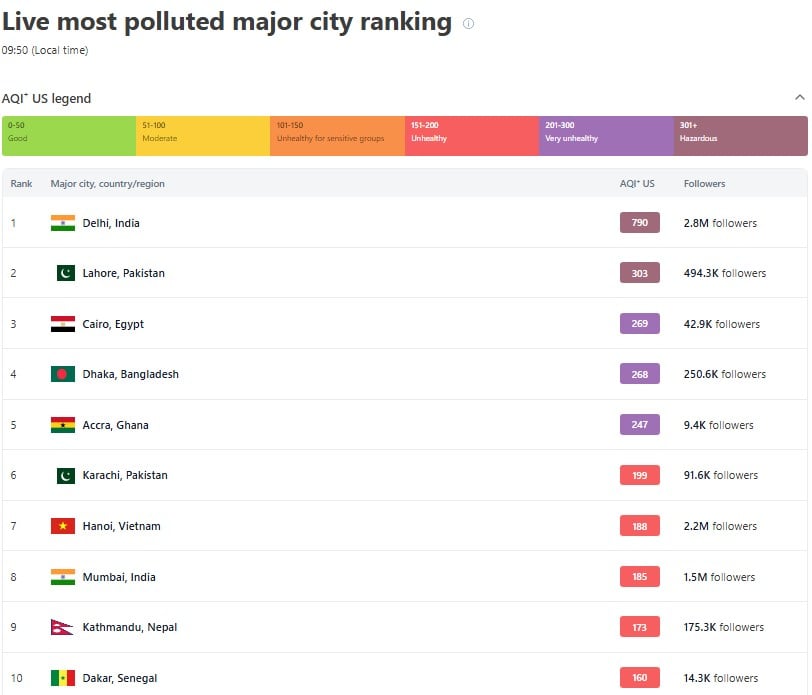KARACHI, PESHAWAR: Residents of Sindh’s port city, who keep an eye out for short-lived winters throughout the year, continue to reel under the prevailing cold wave, which has seen the mercury drop to single digits once again.
With humidity levels standing at 41% coupled with eight kilometres per hour winds from the northwest, the temperature in the metropolis was recorded at 9.5 degrees Celsius.
This is the second time Karachi’s temperature has been recorded below the 10°C mark in the ongoing month. Previously, the Pakistan Meteorological Department (PMD) had recorded the minimum temperature at the Jinnah Terminal at 9.1°C.
Earlier this week, the Met Office had forecast intermittent strong winds in the city, with a drop of 3°C to 4°C at night in southeastern Sindh.
It also said that the temperature in the upper and central parts of Sindh was likely to remain 3°C to 5°C lower than normal.
However, the country’s financial hub is not the only city experiencing cold weather, as the temperature has also dropped in different areas of Balochistan and Khyber Pakhtunkhwa.
In Balochistan’s capital Quetta, the minimum temperature was recorded at -4°C. Other cities in the province with low mercury include Kalat (-5°C), Nokundi (1°C), Sibi (3°C), Gwadar and Jiwani (8°C) and Turbat (9°C).
Meanwhile, in KP, with partially cloudy weather and humidity levels of 92%, the minimum temperature recorded in Peshawar was 1°C.
Poor AQI
The prevailing cold wave is also coupled with poor air quality index (AQI) in Karachi and Lahore — the country’s largest cities respectively.

Lahore, which has been battling severe smog for several weeks now, emerged as the second most polluted city in the world with Swiss air quality monitor IQAir showing the city’s AQI at “hazardous” 303.
The Punjab’s capital was only topped by India’s New Delhi whose AQI was recorded at 790 at around 9:50am.
Karachi on the other hand was ranked as the sixth most polluted city with an AQI of 199 — which is termed “unhealthy” by the Swiss monitor.


